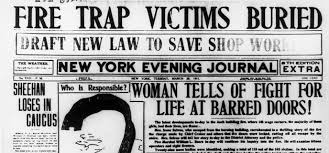By Melissa Josephs
All of us will get sick at some point, sick enough to need to stay home. But in Illinois, 43 percent of workers, or 2.5 million, have no paid sick days. This is particularly a problem for workers in food service, food prep and retail service, who are least likely to have paid sick time and who are in direct contact with the public. Without paid sick days, workers have two choices: they come to work sick because they cannot afford to miss a day’s pay – and can infect co-workers and the public, such as customers – or they stay home and miss a day’s pay, and can be fired for taking a day off that they do not have.
Because we say that providing leave is good for business, we often get asked, “Why is a bill mandating it necessary?” For the same reason we needed a child labor law, a minimum wage law, and occupational safety and health laws to prevent injuries and illness.
On March 25 I testified on our earned sick time bill, the Healthy Workplace Act, in the Illinois Senate Executive Committee. That date was the 104th anniversary of the Triangle Shirtwaist Factory Fire in New York City that caused the death of 146 workers – mostly women and many children. They were trapped inside when the fire broke out because the owner had locked the doors to prevent workers from taking unauthorized breaks. At the time there were no fire safety protections for workers. New Yorkers were horrified by the sight of those women and children jumping from windows to certain death rather than being burned alive.
As a result of that fire, the city created a commission that led to the first set of minimal workplace safety standards, arranging for inspections and requiring that workplaces have fire escapes and not lock the workers in while they performed their job. Here’s what I asked our legislators: Do we have to have an Ebola outbreak before we pass paid sick time legislation?
Many employers already provide time for their employees’ caregiving needs and have reaped the rewards of retaining a skilled and stable workforce. Laws aren’t written for them. They’re written to ensure a minimum standard for all workers – for the more than two in five in our state with no sick days, for those who earn time but can’t use it to care for a family member, and for those who work for an employer that applies a disciplinary policy that gives demerits for using the time you earn.
In my testimony, I reported on the growing body of evidence from places that have already implemented a paid sick days law. The sky didn’t fall in San Francisco, Seattle, DC, Connecticut, and elsewhere. One reason for the positive or neutral impact on business is that employers rarely hire a replacement worker for a person on leave. I quoted Jim Lazarus, senior vice president for policy at the San Francisco Chamber of Commerce, who recently told the New York Times that “most companies who instituted new sick-leave policies in response to the law handled sick days informally, with one worker covering for another, instead of hiring replacement labor, which has reduced costs.”
Connecticut’s policy implementation shows that only 1.4% hired a temporary replacement. In San Francisco, 1.2% reported always hiring outside replacements, and 65.6% reported that they never hire outside replacements for this. Even in small firms, only 8.1% of San Francisco employers with fewer than 10 employees reported always or frequently hiring outside replacements for this.
I shared this quote from a local credit union employer with nine employees: “When one of our employees is sick, we want them to stay home to get better. Since they are offered paid sick time, our employees stick with us for years and that helps our business run smoothly and boosts the bottom line, as training new employees takes time and is expensive.”
What we are waiting for? We need a sick time policy passed now to help all Illinois residents, employees, and employers.
